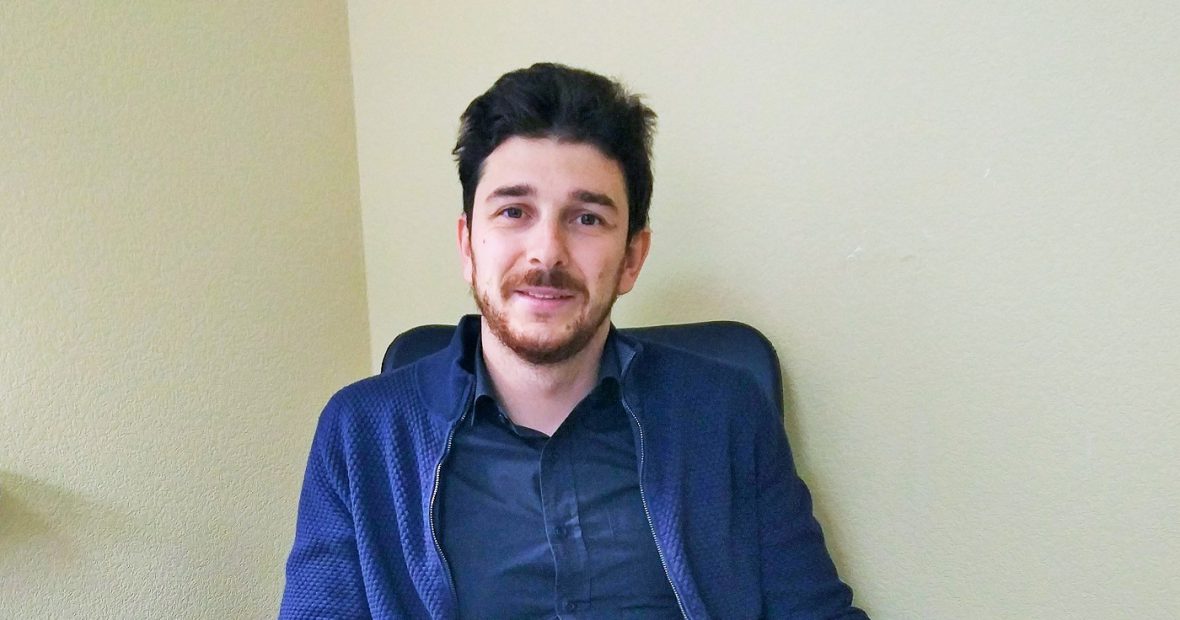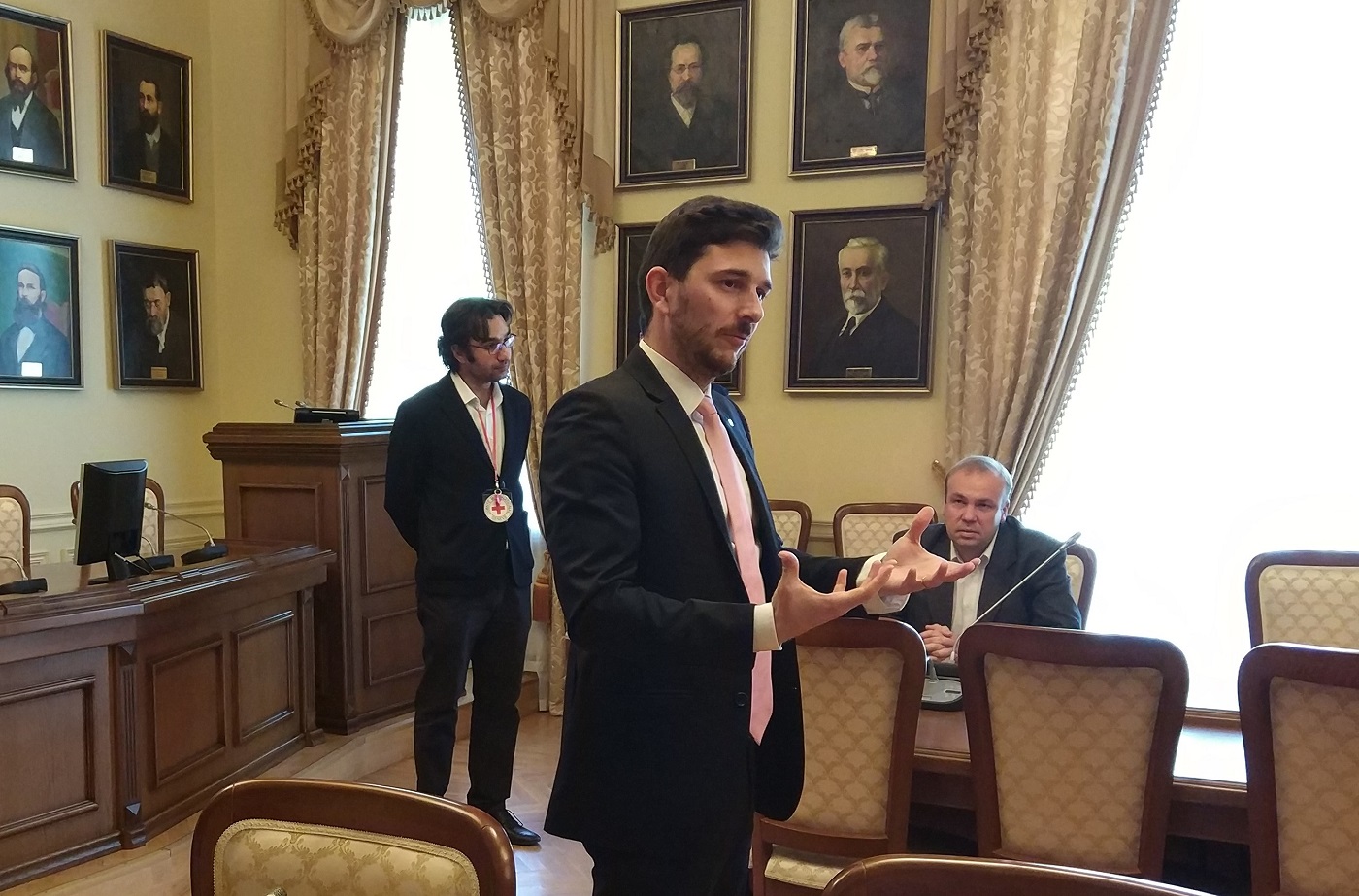Alexander Grif is the Deputy Protection Coordinator for Detention at the Delegation of the ICRC in Ukraine. Alex studied comparative linguistics with a focus on Arabic at the University of Vienna and the University of Paris. Originally from Austria, he has worked as a project coordinator for various organizations and has been on missions with the ICRC in Libya, Yemen, Iraq and now in Ukraine for over a year.
Alex, what are the priorities of the ICRC Detention Programme in Ukraine?
What we want to achieve in a context like Ukraine is to improve the living conditions for the detainees. We as the ICRC want to be able to visit all the detainees, to check their whereabouts, to verify their conditions of detention, their health… We want to make sure that every detainee here in Ukraine, on both sides of the contact line, has contact with their families, with their loved ones, and that even those separated from their families by the contact line have the possibility to see each other.
What motivates you in your day-to-day work?
My main motivation is the feeling that we can make a difference for people to whom no one else can help. We as the ICRC have proximity to people who suffer from the conflict, and we make an effort to reach those whom nobody else can reach. Our work is very difficult and sometimes prone to disappointment because we cannot change the way the world works. We probably cannot stop the war and we cannot bring peace, but we can make a difference both for the individual person and also on a systemic level. I believe that one needs to remember successes more than failures.
As a member of the organization who joined the ICRC back in 2012, what would be your advice to a new delegate coming to Ukraine?
This is my advice to any new delegate, not just to the ones coming to Ukraine. The ICRC is a very large and old institution. Especially when you start with the ICRC, you need to take the time to really learn about the ICRC, to read about the ICRC. If you spend your first three months really trying to understand the organization and reading about what we have been doing in the country and in other countries, chances are that when you encounter a given situation – you will know what to do. You will not have to reinvent the wheel, which is very difficult because your daily priorities and your daily tasks take a lot of time. It’s easy to get into the mindset of learning by doing, but it’s more complicated to carve out the time to really read institutional documents, policies, guidelines, reports that are coming out on different subjects. In the end, if you dedicate two hours to read a specific report, it will help you throughout the mission. I think the recommendation here is when you start with the ICRC, don’t rush to do everything at once. Take your time to really prepare yourself, so when you are out there representing your organization, you do the best work possible. Sometimes we are the only organization who has access to certain parts of the population. You want to be a hundred percent sure that you are the best person to help these people. This you can achieve by really taking your time to prepare yourself before you go on a field trip, on a detention visit, to a meeting, and to other activities.
How do you prevent burnout at work?
You need to rest regularly, you need to have other interests in your life than just your work. Even if your work is your passion, you must not allow to consume you completely! I personally spend a lot of time listening to music, and that definitely helps get my mind off work.


